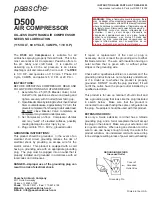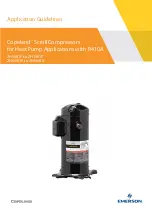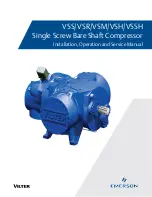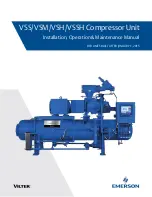
7
SAFETY
WHAT CAN HAPPEN
HOW TO AVOID IT
DANGER: RISK OF EXPLOSION OR FIRE
Electrical components within the motor and pressure
switch will spark. This is normai. lf electrical sparks from
the compressor come into contact with flammable vapors,
they may ignite, causing fire or explosion
Always operate the compressor in a well ventilated area
away from any flammable vapors, liquid, paint, gasoline,
or any other combustible materiai.
Always locate compressor at least 20 ft. (6.1m) away
from work area if spraying flammable materials.
Stare flammable materials in a secure location
away from the compressor
• lnadequate ventilation, or restrictions to any of the
compressor’s ventilation openings, will cause serious
overheating and could cause a fire.
Never piace objects against or on top of an air compres-
sor.
Always operate air compressor at least 18” away from
any wall or obstruction.
Always operate in a clean, dry, and well-ventilated area.
Unattended compressors with leaks in the unit or air sy-
stem could start unexpectedly and repeatedly and could
result in overheating, fire, and persona! injury or property
damage.
A fire can occur if spiiled gas or vapors come into con-
tact with hot engine parts, lit cigarettes, or other sources
of ignition.
Always remain in attendance with the compressor when
it is operating.
Always turn off and unplug the compressor when it is
not in use.
Never attempt to fili the gas tank while the engine is hot
or running.
Add fuel outdoors and in a well-ventilated area.
Do not fili gas tank near lit cigarettes or near other sour-
ces of ignition.
DANGER: RISK TO BREATHING (ASPHYXIATION)
Air from your compressor is not safe for breathing and
may contain carbon monoxide, toxic vapors, or solid par-
ticles. serious injury or death may occur from inhaling the
compressed air from your air compressor.
• Never inhale compressed air directly from the pump,
tank, receiver, or breathing device connected to the air
compressor.
The compressor is not equipped with suitable filters and
in-line safety equipment for human consumption. Do not
use discharge air for breathing..
Sprayed materials such as paint, stucco, insecticides, sol-
vents, etc. may contain harmful vapors and poisons.
breathing.
Operate compressor and perform work only in a
well-ventilated area. Read and follow the safety in-
structions provided on the label or safety data sheets for
the materials you are spraying. Always use certified safety
equipment designed for your specific application.
For gas-powered compressors, engine exhaust fumes
contain poisonous carbon monoxide which is odorless
and colorless. lnhaling those fumes could lead to serious
injury or death
Operate compressors only in well-ventilated areas.
Avoid inhaling engine exhaust fumes, and never run a
small gas-powered engine in a closed building or confined
area without adequate ventilation
EN








































